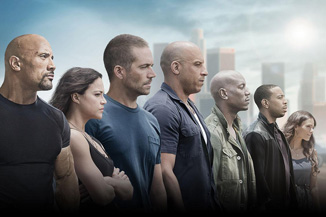Top Film Industry Stories of 2015
#10: Equality and Hollywood
By Ben Willoughby
January 18, 2016
2015 marked the centenary of the D.W. Griffith epic Birth of a Nation. A groundbreaking film, Birth of a Nation pushed the capabilities of cinema though innovations that are now everyday, such as panning, panoramic long shots, and an enormous battle sequence using hundreds of extras. It also depicts newly-elected African-American representatives eating fried chicken in a legislative chamber and an intertitle that reads “the former enemies of North and South are united again in defense of their Aryan birthright.” The climax of the film features the attempted rape of a white woman by a black soldier (played by a white actor in blackface) interrupted by a heroic rescue courtesy of the Ku Klux Klan.
Birth of a Nation’s obvious racism crossed a line by 1915 standards and was heavily criticized. There were protests, and the NAACP called for the film to be banned. It was also the most popular film of the year, earning over $48 million in 1915 dollars at the box office, about $640 million in today’s money. Griffith’s next film, Intolerance, was aimed at critics who wanted to ban Birth of a Nation and argued that his critics were the real bad guys, which is often the same way these debates turn out today. Intolerance was also a financial flop that ultimately led to the sale of its studio, and its enormous Babylon set was left to decay in downtown Los Angeles.
A hundred years on, Hollywood and its audience have both changed immeasurably, but the issues of how Hollywood depicts race, gender, sexuality, history and victimhood are still discussed and debated. 2015 was a banner year – maybe even a tipping point year – as every month seemed to bring a fresh conversation about how different groups of people were treated by the industry, and how Hollywood could do better in representing them.
For women, the conversations focused on equality of opportunity. Patricia Arquette used her Oscar speech to draw attention to the lack of pay equality in Hollywood and America as a whole. Jennifer Lawrence, probably the biggest female star in Hollywood right now – but not yet the best paid, expanded on these issues in an essay on Lena Dunham’s blog Lenny, remarking that male actors were expected to be tough negotiators for their salaries and creative choices and rewarded for this, but women who did the same were seen as difficult to work with, if not spoiled brats - as the leaked Sony emails described Angelina Jolie.
Meanwhile, Amy Schumer’s “last f*able year” sketch barely had to stray from reality as Maggie Gyllenhall talked about how at 37, she was deemed too old to play the love interest for a 55-year old actor and Anne Hathaway revealed that she was losing roles for being too old at 28. Mae Whitman, who played the daughter of President Bill Pullman in the first Independence Day movie, was not even considered to reprise the role in the 2016 sequel, which went to It Girl of the moment Maika Monroe.
Continued:
1
2
3

![]() Tweet
Tweet
![]() Print this column
Print this column



